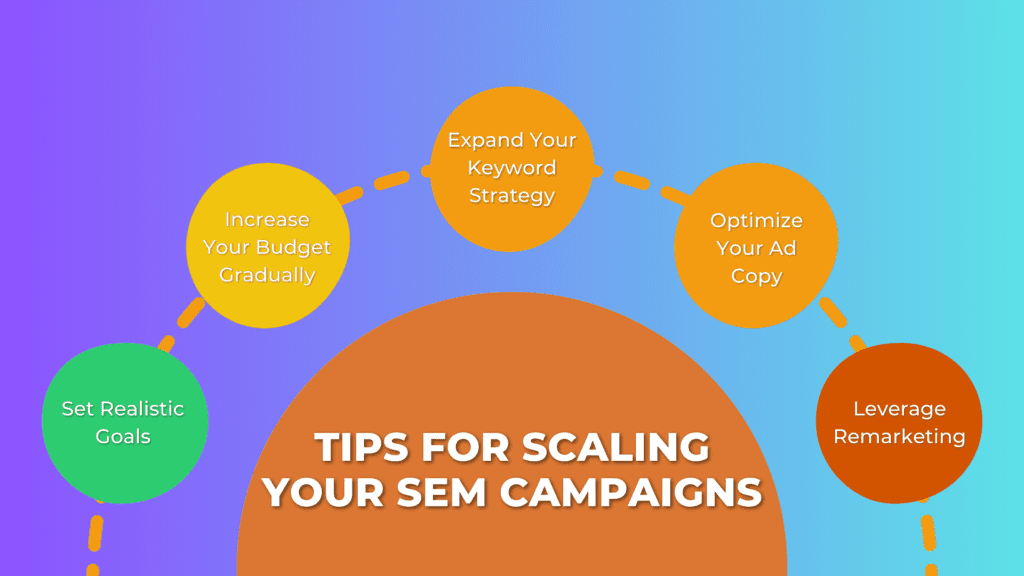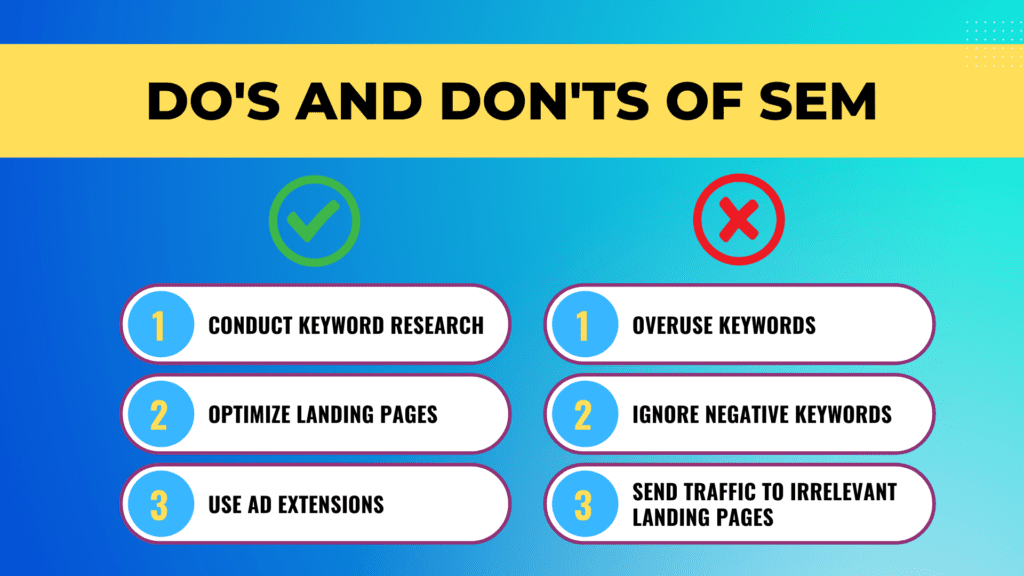Are you tired of feeling like you have to spend a lot of money on your search engine marketing (SEM) campaigns just to keep them afloat? Let me tell you the truth, you’re not alone.
Many businesses struggle with finding ways to boost their SEM efforts without breaking the bank. But fear not, because, with the usage of the right strategies and tactics, you can grow your campaigns without sacrificing your budget. In this article, we’ll go over some tips and tricks to help you scale your SEM effectively and efficiently.
Understanding the Basics of SEM
Before we dive into the specifics of scaling your SEM campaigns, it’s important to understand the basics of SEM. SEM is a type of digital marketing that involves placing ads on search engine results pages (SERPs) to drive traffic to your website.
This can include paid search ads, display ads, and other forms of advertising. SEM is a highly effective way to reach potential customers and increase your website’s visibility.
Creating a Strong Foundation for Your SEM Campaigns
Before you start scaling your SEM campaigns, it’s important to ensure that you have a strong foundation in place. This means having a well-designed website, targeted keywords, and a clear understanding of your target audience. Without these elements in place, your SEM campaigns are likely to fall flat. Here are some tips for creating a strong foundation for your SEM campaigns:
1. Design a User-Friendly Website
Your website is the backbone of your SEM campaigns. If your website is poorly designed or difficult to navigate, visitors are unlikely to stick around. Make sure your website is user-friendly and easy to navigate. This includes having clear calls-to-action (CTAs), easy-to-use forms, and a mobile-responsive design.
2. Conduct Keyword Research
Keyword research is an essential part of any SEM campaign. It involves identifying the keywords and phrases that your target audience is using to search for products or services like yours. Use a keyword research tool like Google Keyword Planner to identify relevant keywords and phrases.
3. Understand Your Target Audience
To create effective SEM campaigns, you need to understand your target audience. This includes knowing their demographics, interests, and pain points. Use tools like Google Analytics and Facebook Insights to gather data about your audience.
Tips for Scaling Your SEM Campaigns

Now that you have a strong foundation in place, it’s time to start scaling your SEM campaigns. Here are some tips for doing so effectively:
1. Set Realistic Goals
Before you start scaling your SEM campaigns, it’s important to set realistic goals. Determine what you want to achieve with your campaigns and set specific, measurable goals. This will help you stay focused and track your progress over time.
2. Increase Your Budget Gradually
One of the biggest mistakes businesses make when scaling their SEM campaigns is trying to do too much too quickly. Instead, increase your budget gradually over time. This will help you identify what works and what doesn’t, and make adjustments accordingly.
3. Expand Your Keyword Strategy
As you scale your SEM campaigns, it’s important to expand your keyword strategy. This means targeting more keywords and phrases that are relevant to your business. Use a tool like SEMrush to identify new keyword opportunities.
4. Optimize Your Ad Copy
Optimizing your ad copy is essential when scaling your SEM campaigns. Make sure your ad copy is relevant, compelling, and tailored to your target audience. Use A/B testing to identify which ad copy performs best.
5. Leverage Remarketing
Remarketing is a powerful tool for scaling your SEM campaigns. It involves targeting users who have already interacted with your website or ads. This can include targeting users who have abandoned a shopping cart or visited a specific page on
your website. Remarketing allows you to stay top-of-mind with potential customers and can be highly effective in driving conversions.
6. Utilize Ad Extensions
Ad extensions are additional pieces of information that can be included in your search ads. They can include things like location information, phone numbers, and links to specific pages on your website. Ad extensions can help increase the visibility of your ads and improve their relevance to potential customers.
7. Monitor and Adjust Your Campaigns
As you scale your SEM campaigns, it’s important to monitor their performance closely. Use tools like Google Analytics and SEMrush to track your campaigns and identify areas for improvement. Make adjustments as needed to improve their effectiveness and drive better results.
Conclusion
Scaling your SEM campaigns doesn’t have to break the bank. By creating a strong foundation, setting realistic goals, and using the right strategies and tactics, you can grow your campaigns effectively and efficiently.
Remember to monitor their performance closely and make adjustments as needed to ensure you’re getting the most out of your SEM efforts.
Read More: The Rise Of Visual Search: How To Optimize Your SEM Strategy For Images
FAQs Related To Scaling Your SEM
What is SEM?
What is SEM?SEM stands for search engine marketing. It involves placing ads on search engine results pages (SERPs) to drive traffic to your website.
Why is a user-friendly website important for SEM?
A user-friendly website is important for SEM because it can help improve your website’s performance and increase the effectiveness of your SEM campaigns.
What is keyword research?
Keyword research involves identifying the keywords and phrases that your target audience is using to search for products or services like yours. It’s an essential part of any SEM campaign.
How can remarketing help with SEM?
Remarketing can help with SEM by targeting users who have already interacted with your website or ads, allowing you to stay top-of-mind with potential customers and drive more conversions.
How important is monitoring and adjusting your SEM campaigns?
Monitoring and adjusting your SEM campaigns is essential for ensuring their effectiveness and driving better results. It allows you to identify areas for improvement and make adjustments as needed to achieve your goals.
Read More: 3 ways to scale your SEM efforts when you are hitting a wall

















